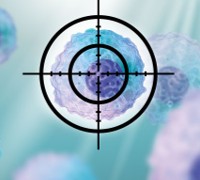
The importance of targeted drug delivery
In the fast-paced world of drug discovery, one of the most persistent challenges researchers face is not just finding compounds that work - but getting them exactly where they need to go in the body. This is where targeted drug delivery has transformed the landscape. By directing therapeutic agents to specific cells, tissues, or organs, researchers can improve drug efficacy, reduce off-target effects, and minimise toxicity. In a research environment where precision matters more than ever, the ability to “deliver smarter” is as critical as the drug itself.
Beyond just improving treatment outcomes, targeted delivery helps address several major barriers in drug development. Many promising drug candidates fail in clinical trials due to poor bioavailability or systemic toxicity. Targeted systems can increase the therapeutic index - ensuring higher drug concentrations at the disease site while sparing healthy tissues. This is especially crucial for drugs with narrow safety margins, such as chemotherapeutics. Moreover, targeted delivery can overcome biological barriers like the blood-brain barrier or tumour microenvironment, opening new therapeutic possibilities for previously untreatable conditions.
Targeted delivery is especially vital when developing treatments for complex diseases like cancer, genetic disorders, and infectious diseases. A promising compound is only as effective as its ability to reach and act on the intended biological target. This is why delivery mechanisms are now considered integral to the success of modern therapeutics, not an afterthought.
Lipid Nanoparticles: A game-changer in targeted delivery
Among the many delivery technologies emerging today, lipid nanoparticles (LNPs) are quickly becoming the frontrunners - and for good reason. These nanoscale carriers are particularly effective at delivering nucleic acid-based therapies, such as mRNA, siRNA, and CRISPR components, which are otherwise difficult to transport safely through the body.
LNPs offer several advantages:
- Biocompatibility and biodegradability, making them safe for use in humans.
- High encapsulation efficiency for fragile molecules like mRNA.
- Enhanced cellular uptake and endosomal escape, ensuring the payload reaches its intracellular target.
- Scalable and adaptable formulations that can be tuned for different therapeutic areas.
Their moment in the spotlight came with the global rollout of mRNA-based COVID-19 vaccines, where LNPs played a starring role in enabling successful delivery of the genetic payload. But their potential extends far beyond vaccines - into oncology, rare disease therapeutics, and gene editing technologies.
Powering LNP research with Cayman Chemical
For researchers navigating the LNP space, access to reliable, high-quality research tools is essential. That’s where Cayman Chemical excels. With a range specifically designed for LNP research that includes research-ready LNPs and formulation reagents, Cayman have made targeted drug delivery solutions easier than ever.
Their offerings include:
- Preloaded and loadable LNPs
- LNP exploration and uptake kits
- Ionisable lipids and PEGylated lipids, key building blocks for formulating stable and effective LNPs.
- Custom synthesis and formulation services, enabling tailored solutions for unique research needs.
Cayman’s commitment to scientific innovation, paired with their consistent product quality and technical support, makes them a trusted partner in the fast-evolving field of lipid nanoparticle research. As targeted drug delivery continues to shape the future of drug discovery, lipid nanoparticles are proving themselves to be not just a trend, but a cornerstone of next-generation therapeutics. With robust tools and expert support from Cayman Chemical, researchers are better equipped than ever to unlock the full potential of LNPs and accelerate the path from bench to bedside.
